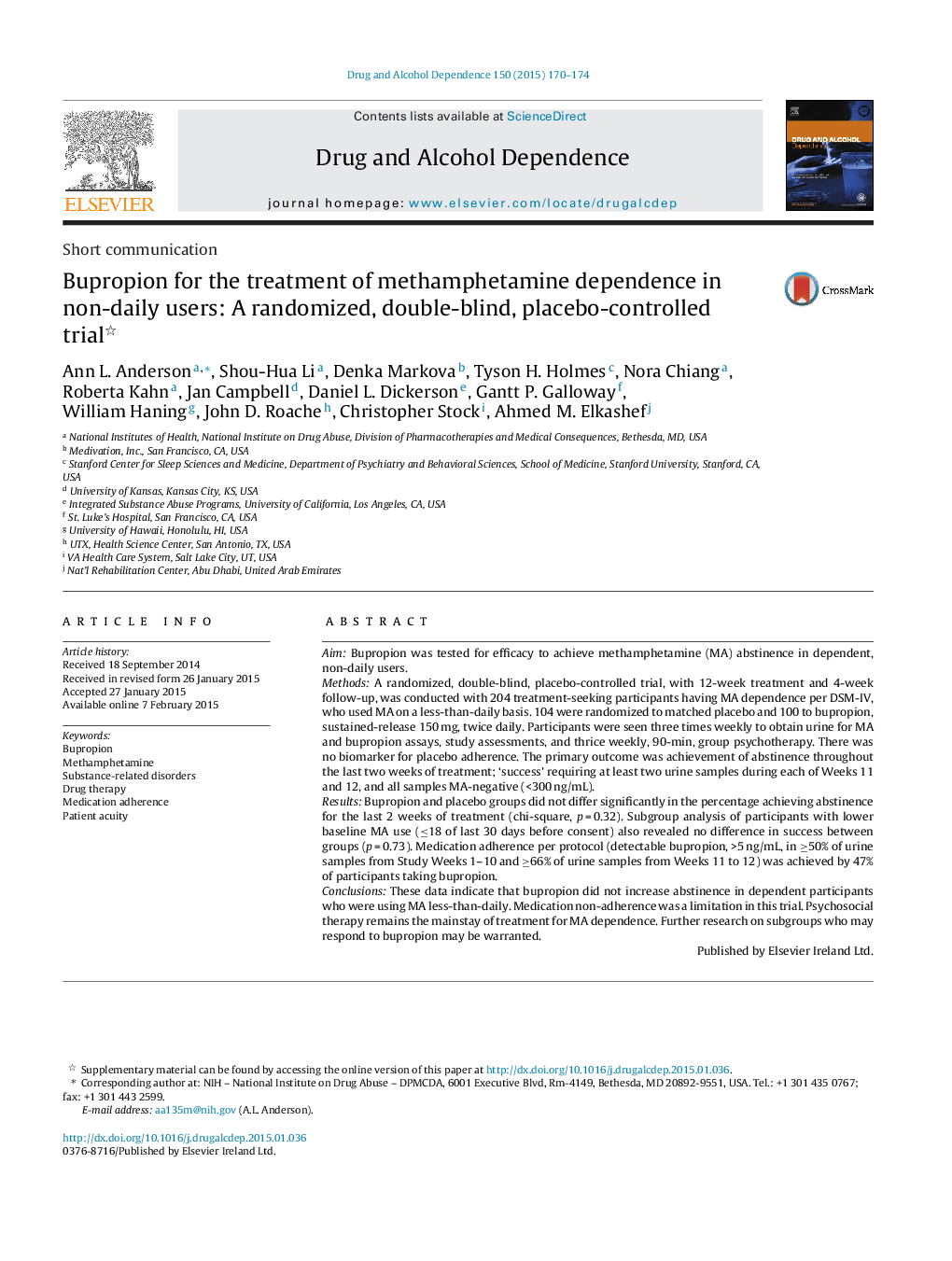| کد مقاله | کد نشریه | سال انتشار | مقاله انگلیسی | نسخه تمام متن |
|---|---|---|---|---|
| 1069823 | 1486141 | 2015 | 5 صفحه PDF | دانلود رایگان |
• Bupropion SR 150 mg BID, vs. matched placebo, for 12 weeks to 204 treatment-seekers.
• 3× per week urines for meth and bupropion levels. No biomarker for placebo.
• No significant difference between treatment groups in % abstinent in Weeks 11–12.
• Bupropion adherence per protocol was achieved by just 47%.
• Additional data show wide range of adherence patterns, max levels, and clearance rates.
AimBupropion was tested for efficacy to achieve methamphetamine (MA) abstinence in dependent, non-daily users.MethodsA randomized, double-blind, placebo-controlled trial, with 12-week treatment and 4-week follow-up, was conducted with 204 treatment-seeking participants having MA dependence per DSM-IV, who used MA on a less-than-daily basis. 104 were randomized to matched placebo and 100 to bupropion, sustained-release 150 mg, twice daily. Participants were seen three times weekly to obtain urine for MA and bupropion assays, study assessments, and thrice weekly, 90-min, group psychotherapy. There was no biomarker for placebo adherence. The primary outcome was achievement of abstinence throughout the last two weeks of treatment; ‘success’ requiring at least two urine samples during each of Weeks 11 and 12, and all samples MA-negative (<300 ng/mL).ResultsBupropion and placebo groups did not differ significantly in the percentage achieving abstinence for the last 2 weeks of treatment (chi-square, p = 0.32). Subgroup analysis of participants with lower baseline MA use (≤18 of last 30 days before consent) also revealed no difference in success between groups (p = 0.73). Medication adherence per protocol (detectable bupropion, >5 ng/mL, in ≥50% of urine samples from Study Weeks 1–10 and ≥66% of urine samples from Weeks 11 to 12) was achieved by 47% of participants taking bupropion.ConclusionsThese data indicate that bupropion did not increase abstinence in dependent participants who were using MA less-than-daily. Medication non-adherence was a limitation in this trial. Psychosocial therapy remains the mainstay of treatment for MA dependence. Further research on subgroups who may respond to bupropion may be warranted.
Journal: Drug and Alcohol Dependence - Volume 150, 1 May 2015, Pages 170–174
